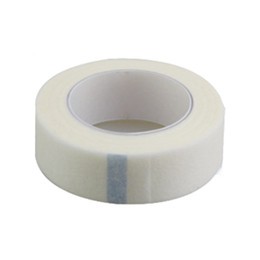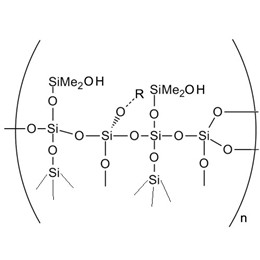1. Opportunities and challenges coexist in the market
We are gradually entering an era of the interconnection of Everything. With the advancement of science and technology, concepts such as 5G, artificial intelligence, virtual reality, and big data have entered the public's attention, driving a new round of upgrading and popularization of consumer electronics.
1) 5G technology promotes the rapid growth of global smartphones that have entered the stock replacement,in which China accounted for the majority of the shipment.
2) With Apple’s participation in the WPC alliance, the wireless charging field has become a hot topic again, and the market scale is expected to exceed 10 billion US dollars in 2024.
3) The size of TV panels increased by about 1 inch each year, driving the demand growth rate of LCD screens to maintain at 5-8% in the next three years. OLED flexible screens become hot because it is more in line with the requirements of wearable devices and the rapid growth of the market. Although the panel industry has fully entered the era of localization, the localization demand for optical materials is still very strong.
Most of the electronic equipment manufacturing processes are relatively sophisticated, multi-step processes and highly complex parts have spawned many supporting industries, and pressure-sensitive adhesive materials play a pivotal role in different fields.
Pressure-sensitive adhesive is an adhesive material, which produces viscous flow through slow and appropriate external force, realizes close contact with the surface of the pasted object, generates intermolecular force, and achieves interface bonding.
1) In the field of wireless charging, the pressure-sensitive tape helps to bond, fix and protect the modules at the receiving end and transmitting end to make them play an energy-efficient role.
2) In the display field, the optical pressure-sensitive adhesive is used to bond various kinds of optical materials inside the screen, so that it can still maintain optical transparency under high temperature and high humidity conditions and ensure the clarity of imaging.
3) Protect all kinds of "delicate" electronic parts (such as screens and their parts) during the process of manufacturing and delivery to prevent them from being damaged due to scratches and collisions that may occur during transportation.
Silicone PSA is widely used in the preparation of various protective films for the electronic industry, providing comprehensive protection for the transportation, manufacturing and use of precision parts.
2. Characteristics and selection of Silicone Pressure Sensitive Adhesive
There are many types of protective films. The common protective film has a simple structure and no functional layer. The main components are the substrate and pressure-sensitive adhesive. Different substrates are selected according to different application scenarios and functional requirements, common ones are PET, PE, OPP, PI, TPU, PVC, etc. The pressure-sensitive adhesive used in the protective film can be divided into polyurethane (PU), acrylic and silicone, and their physical and chemical properties are quite different. With its advantages in high and low-temperature resistance, weather resistance, exhaust gas, and light transmittance, Silicone PSA has become the best choice in the field of electronic protective film.
| Performance | PU | Silicone | Acrylic |
| Exhaust Property | Good | Excellent | Poor |
| Weather Resistance | Good | Excellent | Commonly |
| High-temperature Resistance | 150 | 200-250 | 150 |
| Low-Temperature Resistance | -40 | -50 | 0 |
| Transmittance | Better | Better | Poor |
| Price | High | High | Medium |
Viscosity is usually the primary consideration when choosing Silicone PSA. Viscosity is different from adhesion. The often-speaking "adhesion" generally refers to the peeling force between the substrate and the protective film. The viscosity also includes initial adhesion force, holding adhesive force, and cohesive force. These are factors that customers need to consider comprehensively when choosing Silicone PSA. The backing of the substrate, the thickness of the glue and the formula will also affect the adhesion of the Silicone PSA.
Besides the conventional viscosity requirements, the application performance is another key factor in choosing Silicone PSA. For example:
1) Shipping protection of parts (such as polarizing sheet): die cutting property, silicon transfer, residual adhesive and wet and heat aging performance of the protective film. The transfer or residual of Silicone PSA will change the surface of the protected material, and destroy its original unique properties.
2) Process protection of parts (such as coating, screen printing): silicon transfer and aging performance under extreme conditions. Silicon PSA should withstand the special conditions of some processes, so as to ensure that the process can realize the function of specific target parts without affecting the rest of the components. For example, with the increasing requirements for the shooting effect, it is very important to conduct functional coating on the lens. The coating process usually needs to withstand 200 ℃ or higher temperatures.
3) Terminal protection of electronic products (such as mobile phone toughening film): transparency, infiltration and exhaust property of adhesive.
![]()
3. Development Trend of Silicone Pressure Sensitive Adhesive-Thinner and more difficult to stick materials
With the increasingly fierce competition in the industry, protective film manufacturers hope to effectively control the costs by reducing the thickness (quantity) of the coating under the premise of ensuring viscosity and reliability. On the other hand, Silicone PSA needs to be used more on the surface of hard-to-stick materials, e.g. anti-fingerprint screens. (Anti-fingerprint technology is to apply a fluorine-containing coating with extremely low surface tension to the glass cover plate, so that it has the characteristics of hydrophobicity, oil repellency, scratch resistance, anti-fingerprint, smooth touch, etc.). All these put forward higher requirements on the performance of Silicone PSA.
XJY Silicones
XJY Silicones is a new enterprise for silicone resin innovation and R&D, with more than 30 years of experience in the silicone industry.
As one of the global manufacturers of Silicone PSA, XJYSilicones, relying on its professional team and years of (35 +) rich R & D experience, has completed the preparation from silicone resin synthesis to pressure sensitive adhesive. We provide a series of customized and development services for our customers.
Our manufacturing, R&D, and sales services obtained the ISO9001 certificate.
![]()


